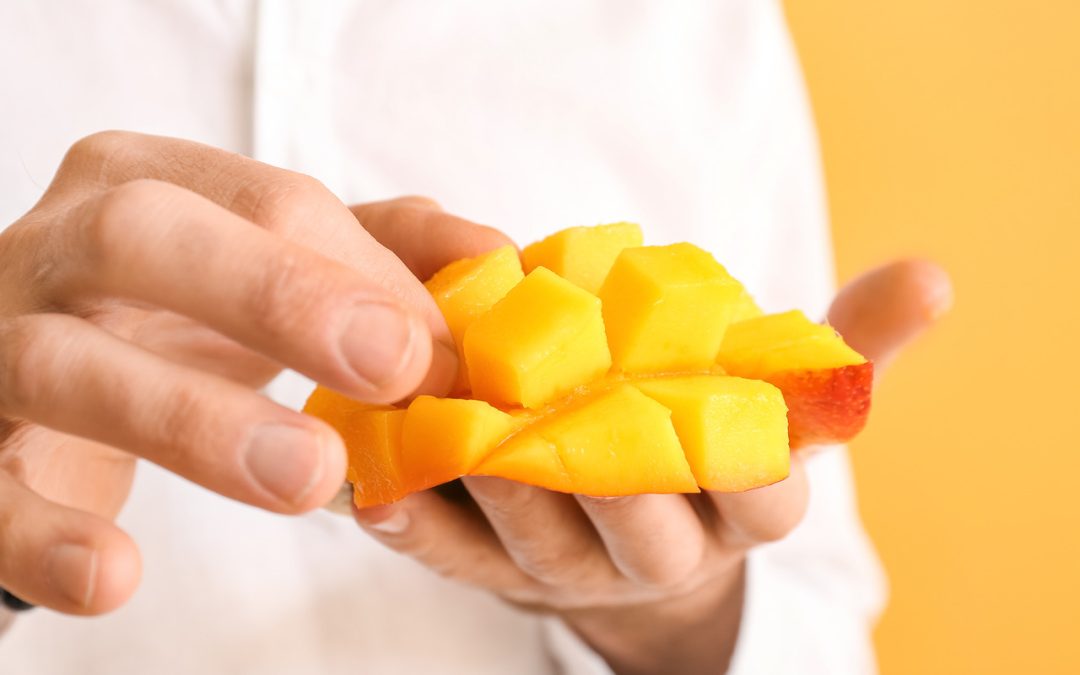Mangoes are delicious and healthy, a fruit enjoyed by many. But, as they are juicy and sweet, it’s natural for diabetics to wonder if this is a fruit well suited for them. However, research has found that people with diabetes can enjoy this fruit in moderation.
As per nutritional data, every 100 grams of mango has 15 grams of carbs, of which 14 grams is sugar. So, it is common to assume that even a slice can spike your blood sugar level, worsening the condition. Keep reading to determine whether people with diabetes can include mangoes in their diet.
Do Mangoes Affect Blood Sugar Levels?
One of the most common questions diabetics have is whether they can eat mangoes. The answer is yes, but, it’s essential to eat mangoes in uncontrolled portions. One or two mango slices are a good serving size for people with diabetes.
Mangoes are healthy, but like any fruit, they contain carbohydrates. Carbohydrates cause blood sugar levels to rise, but the fibre content in mangoes helps to limit the sugar absorption rate. It means that the blood sugar spike after eating mangoes is manageable. Furthermore, scientific findings suggest that mango is a fruit with good nutritional value, low glycemic load, and an acceptable glycemic index.
Nutrients in Mango
Mangoes are a sweet and succulent fruit perfect for a hot summer day. They are also rich in nutrients, including dietary fibre, vitamin B complex, vitamin C, vitamin K and A. In addition, mangoes are a good source of critical minerals such as potassium, magnesium, and copper. However, they are low in cholesterol and saturated fats. Therefore, mangoes are vital in promoting healthy, stable life.
Mango is rich in omega-3 and omega-6 fatty acids and antioxidants. The nutrients in a single mango can boost your immunity, eventually helping you to maintain an ideal blood sugar level.
With such an impeccable nutrient profile, mango offers myriad health benefits for people with diabetes and other metabolic disorders. For instance, the antioxidants in mango help scavenge harmful oxygen-derived free radicals and reactive oxygen species (ROS) from the body that play a role in ageing, cancer, and various inflammatory diseases.
Mango: Glycemic Index
One of the primary parameters to deciding on the consumption of any food source when you have diabetes is to check its glycaemic index (GI). The glycaemic index measures how much a food product raises blood sugar levels. Foods with a high GI raise blood sugar levels more than foods with a low GI. Foods with a GI of 70 or more are considered high, foods with a GI of 56 to 69 are considered medium, and foods with a GI of 55 or less are considered low. Here, mangoes have a GI of 51, which falls under the low category, making it a healthy option for a diabetics
You must note that eating raw mangoes will help you maintain insulin sensitivity more than ripe ones. Nonetheless, the physiological response for mangoes might vary depending on your metabolism and the stage of diabetes. So, portion control is a must while consuming mangoes. Therefore, if you have diabetes, it is best to consult your doctor before adding mangoes to your diet, especially if you are on medication.
The HealthifyMe Note
Mango contains natural sugar, which can lead to increased blood sugar levels. However, individuals with diabetes can consume one small to medium-sized mango twice a week in season. The fruit has high fibre and water content, making it a better option for people with diabetes. Fibre helps reduce the overall effect of carbs on the body by slowing down glucose absorption into the bloodstream. In addition, the water content in mangoes can help prevent dehydration, a common complication of diabetes.
Tips to Eat Mangoes Safely When You Have Diabetes
Here are some practical tips to help you enjoy the sweet taste of the fruit without affecting your blood sugar level:
- Like fibre, protein helps lower blood sugar spikes when you consume it, along with high-carb fruits like mango. Hence for a balanced meal, try to pair your mango with a boiled egg or nuts.
- Avoid consuming other carb-rich foods while you are eating mango. You can also add mango slices to your salad to balance its effect.
- Check your sugar levels before consuming mangoes with your meal. That will help you to determine its impact on your health.
Conclusion
Mangoes are packed full of rich nutrients – vitamins and minerals. However, most of the calories in the fruit come from sugar, raising blood sugar and concern among people with diabetes. While mangoes have natural sugar, it just means that people with diabetes must be more careful about how much they eat.
The perfect way to include mangoes in your daily meal is by, monitoring portions and pairing them with protein foods to help reduce the spikes in blood sugar levels. Simply, becoming diet-smart and eating tropical food with discipline will improve your overall well-being in the long run.


